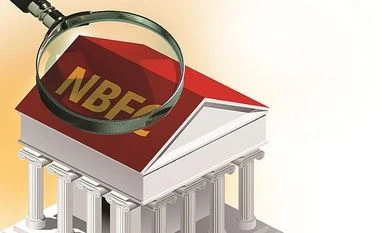With strong capital and on-balance sheet buffers, non-banking financial companies (NBFCs) are well prepared to deal with any impact on economic activities due to the second wave of COVID-19, a report said.
With a surge in coronavirus infections, many states have started imposing strict restrictions, including mini-lockdowns, which are likely to have a significant impact on business activities, India Ratings Research said in the report.
"Non-banks are better prepared to manage as they have ramped-up defences in the form of stronger capitalisation buffers and better on-balance sheet liquidity buffers," the agency said.
In addition to it, as of now, the lending environment remains subdued, it added. Also, the tested systems of non-banks to reach out to customers and benefits of operational efficiency would provide further support.
NBFCs have been reporting a sharp improvement in collection efficiency since September 2020, which is likely to have been partly supported through customers' savings, the report said.
As the economic activity, especially non-essential, gets curtailed, customers might find not enough savings to support payments, it said, adding that, unlike last time, the regulators have not announced any dispensation and hence there is an elevated possibility of a rise in softer delinquencies in coming months.
Also Read
"Having said that, we believe that all have learned the lessons, be it authorities, lenders and borrowers, and they are better placed to face this challenge," as per the report.
The agency believes NBFCs had built adequate COVID provisions (150-200 basis points) during the first wave, where collection efficiency across major asset classes had normalised near pre-COVID levels.
"Benefits such as emergency credit line guarantee (ECLGS) schemes getting extended would help borrowers facing working capital challenges, thereby reducing immediate pressure on asset quality," it said.
The report further said few sectors funded by non-banks such as housing, commercial vehicle finance, microfinance loans, loan against property, gold loans, and unsecured personal /business loans could see a varied impact based on each asset class strength.
While microfinance loans are yet to normalise their collection to pre-COVID levels, urban microfinance loans could be severely impacted and collection efficiency could moderate with the lockdown and the consequent labour migration, it added.
Gold loans can see renewed interest due to lenders getting cautious for loans against other collaterals, the report noted.
The agency said it has maintained a stable outlook for NBFCs operating under the retail category, whereas a negative outlook for wholesale nonbanks for FY22.
It would remain watchful on developing implications of the renewed challenges with the second wave.
(Only the headline and picture of this report may have been reworked by the Business Standard staff; the rest of the content is auto-generated from a syndicated feed.)
)